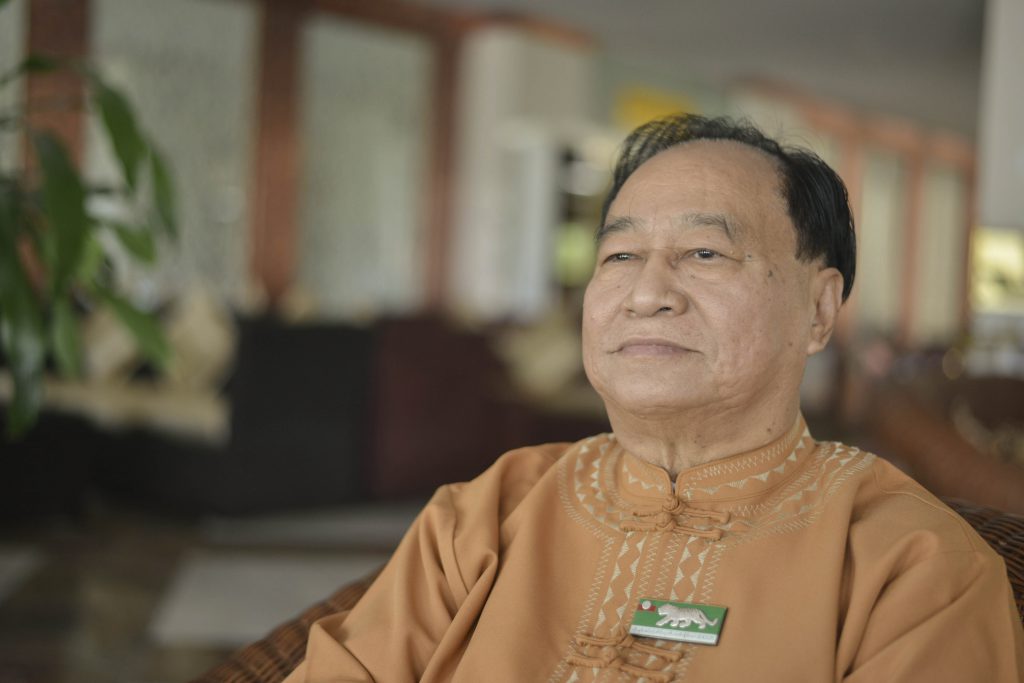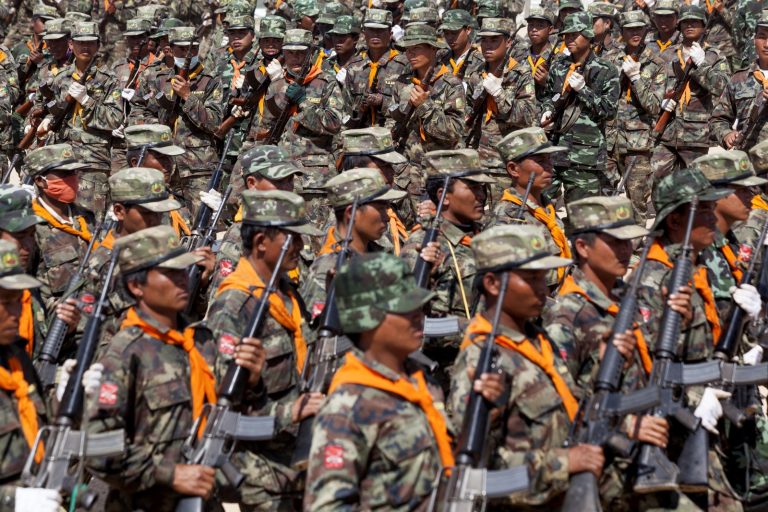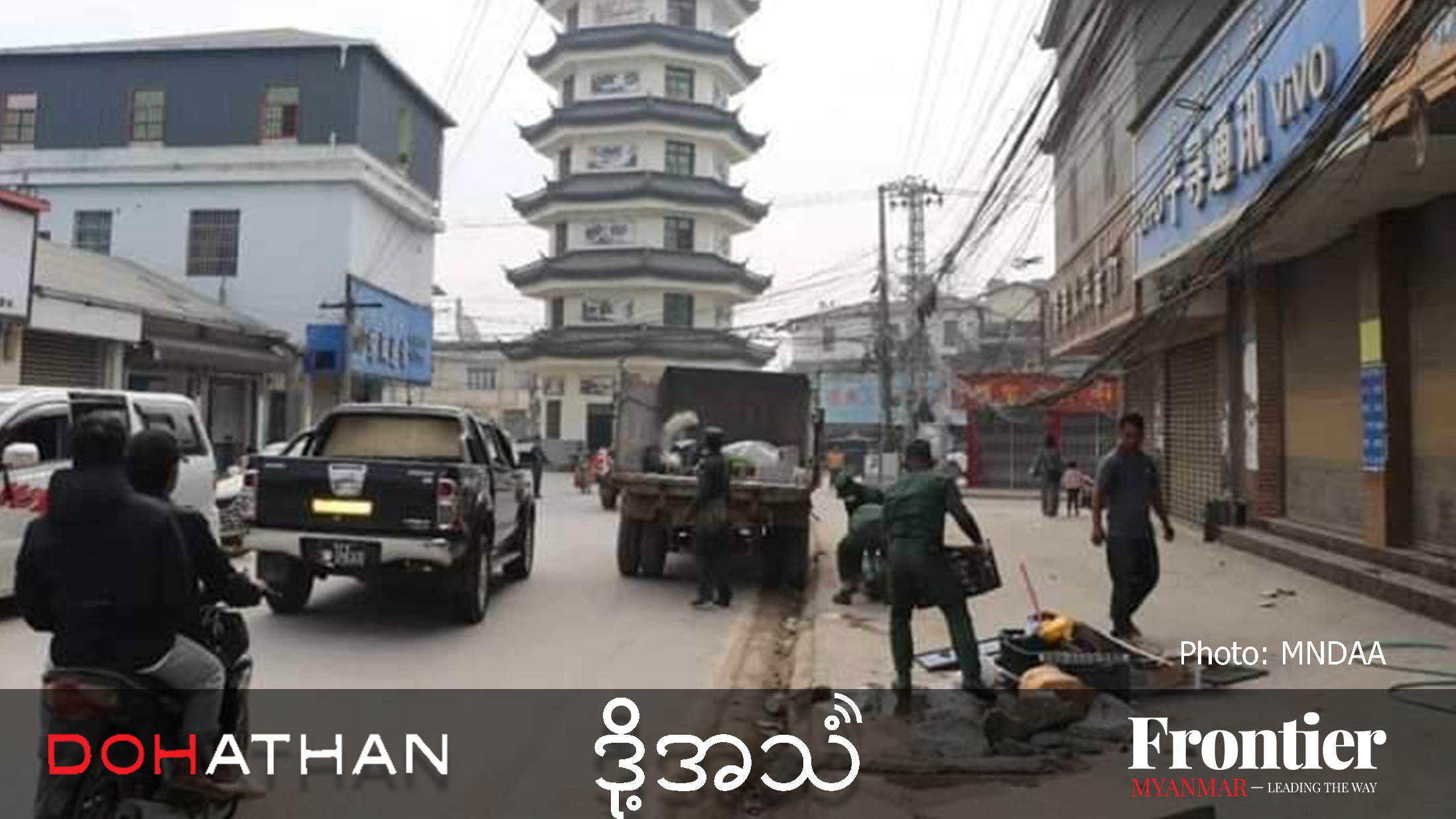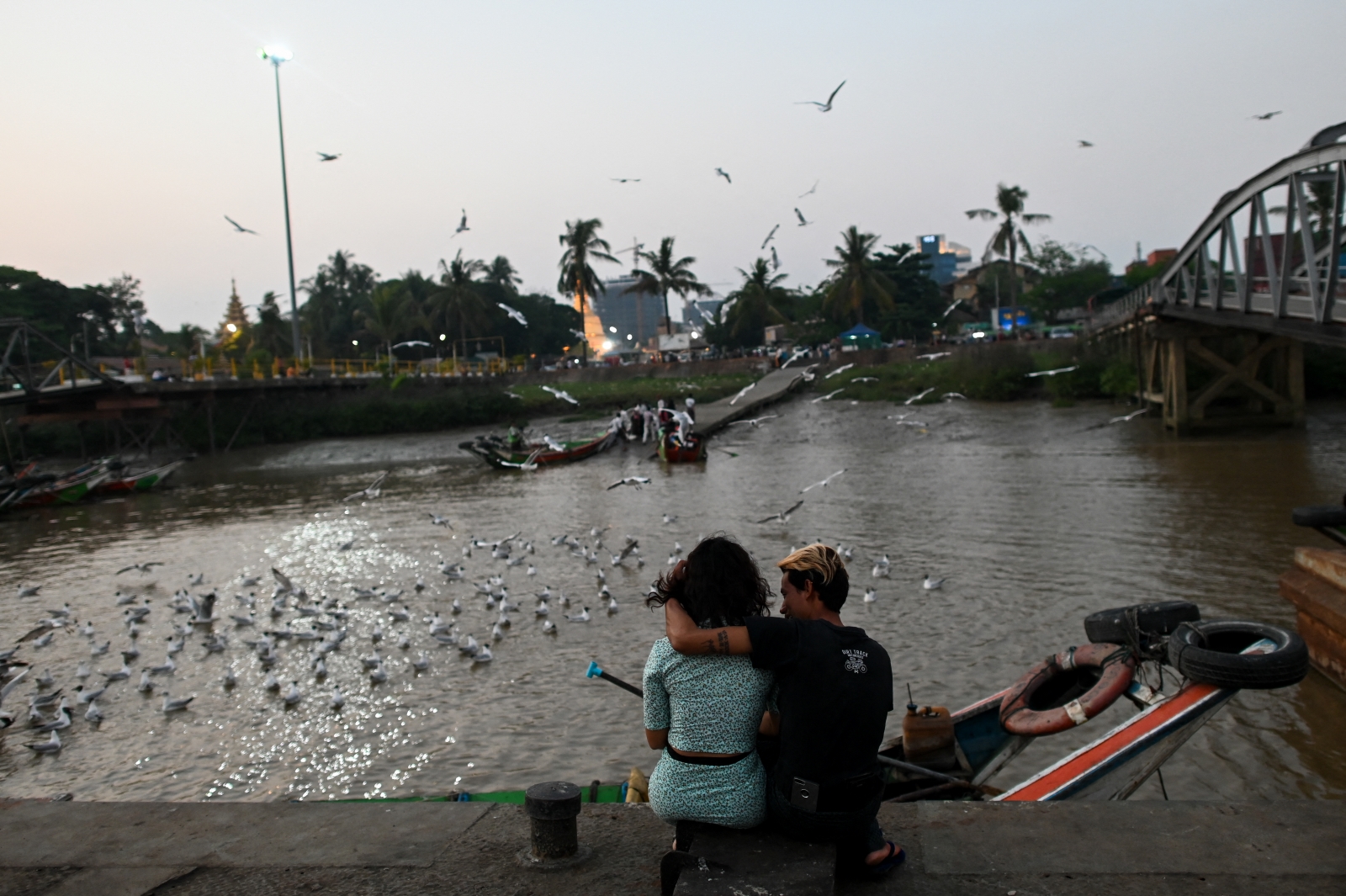The Shan Nationalities Democratic Party is contesting 211 seats in the November 8 election – 79 at Union level and 132 at state and regional level — and is fielding the most candidates after the Union Solidarity and Development Party and the National League for Democracy.
The SNDP contested 157 seats in the 2010 election, in which it was the third-biggest winner, securing 21 at the Union level and 36 at state and regional level.
Sai Aik Pao has chaired the SNDP since it was founded and is a cabinet member in the Shan State government. He was the SNDP’s secretary-general when it participated in the 1990 election. Sithu Aung Myint interviewed Sai Aik Pao for Frontier at his home in the Shan State capital, Taunggyi.
Is the SNDP competing in all the constituencies in Shan State?
Shan State is made up of various ethnic tribes. For example, [ethnic] Shan are a minority in the Wa Autonomous Region, the Palaung and Danu regions, as well as Kokang. We cannot win in those regions, so we are not going to compete there. But ethnic Shan make up one–third of the population in the Pa-O autonomous region, so we will compete in all three townships [there].
The main parties competing in Shan State are the SNDP, the National League for Democracy, the Union Solidarity and Development Party and the Shan Nationalities League for Democracy, headed by Khun Htun Oo. Which of the parties against which the SNDP is competing are you most worried about?
We aren’t worried at all. Our party has increased to 500,000 members; we had just over 1,000 in 2010. There are more than 40,000 party members in Hsipaw Township alone, and more than 16,000 in my hometown of Namkham. So I’m not worried.
Many political parties have had problems choosing candidates. How did the SNDP choose its candidates?
We choose our candidates based on the townships they’re running in, so we don’t have problems like this. We have more than 210 candidates representing our party in the coming election. That’s the largest number of any ethnic minority party.
In Shan State in the 2010 election, the USDP won 80 seats and the SNDP won about 50. With the NLD and the SNLD competing for seats this year is there a danger of a split vote?
We expect that out party will win more seats than ever. Our numbers have strengthened in eastern, northern and southern Shan State. We are not afraid [of contesting any seat] so long as the election is free and fair.
Has the SNDP formed alliances with any other ethnic minority parties in Shan State to maximise its chances in the election?
We haven’t made any arrangements like that.
What are the main differences between the SNDP and the SNLD?
Our main differences are in political policy. They want a federal Union with eight states, whereas we accept the status quo of seven regions and seven states, as laid out under the present constitution. That’s the main difference between us.
What the SNLD most wants is constitutional reform? What does the SNDP want?
We also want constitutional reform. An SNDP MP is part of the 31-member Union Parliament Constitutional Reform Committee. We submitted 102 points to be part of the proposed reforms, but in reality, there’s been very little reform. What we ardently want is a change to Section 261 of the constitution because we want chief ministers to be elected by the region and state hluttaws. That proposal was vetoed, but frankly speaking, we must fight for it. I believe it can be achieved if pro-democracy forces win a majority of seats in the election.
If you had to compare your party’s policies to those of the NLD and the USDP, which would they most resemble?
Neither. We stand on our own two feet. We’ll discuss [policy issues] with any party, but will not be allied with or subordinate to any big party. There’s one exception to this, perhaps: our party is one of the 21 ethnic minority parties that comprise the Nationalities Brotherhood Federation.
You said that except for the eight-state policy of the SNLD, the policies of the two big Shan parties are essentially the same. If I was a voter in Shan State why should I vote for your party?
We won 57 seats in 2010 and another seat in the 2012 by-election, so 58 in total. We also have seats in three hluttaws and six ministerial positions. So we do much for the people. We can help to solve their problems. Previously, forced labour and the temporary appropriation of motor bikes and vehicles by police and the Tatmadaw were common in Shan State. Now, it does not happen. Fear has reduced tremendously.
Let’s say the SNLD wins seats in the Union parliament. When the vote takes place in the Pyidaungsu Hluttaw to choose the next president, who will your party support: the candidate proposed by the NLD or the candidate proposed by the USDP and the military MPs?
The party that wants to be the Union government must seek the cooperation of ethnic national parties. If you want to be the president, you need our support. It is a give and take situation. What will you give me? There is no perpetual friend or enemy. There is only perpetual interest. We can work with everybody – NLD or USDP or military representatives. If you allow us to choose our chief ministers, we will vote for you. We also want certain Union government ministerial posts.
As the leader of a political party, how do you rate the performance of the USDP government headed by President U Thein Sein?
Nobody is perfect. If I was the president, I would not be perfect. He brought the country into the international community. It has brought benefits because we are no longer isolated. It is good In the case of owning motor vehicles and mobile phone communication, there have been great improvements. But problems over land grabs have not been solved. The government’s performance is a bit like sitting an examination. It passed the examination but not with distinction.
The chairman of the Union Election Commission, U Tin Aye, is a member of the USDP and a former general. Do you believe he will ensure the election is free and fair?
The way he talks is credible, but we will have to wait and see. The answer will come after November 8. When I was in Nay Pyi Taw, I once told him that as Tatmadaw MPs have 25 percent of the hluttaws, the families of Tatmadaw members should not participate in the election. He did not like that. I also said that if Tatmadaw families want to vote, it should be in polling stations in the community, not in military bases. The election will not be 100 percent free and fair. It will be about 80 percent free and fair, I think.
As an ethnic party leader, what is your opinion about the ouster of Thura U Shwe Mann as USDP chairman?
As I see it, it was an internal conflict within the USDP. It has damaged the country’s image. But it will have no effect on the election. It will proceed as scheduled.







